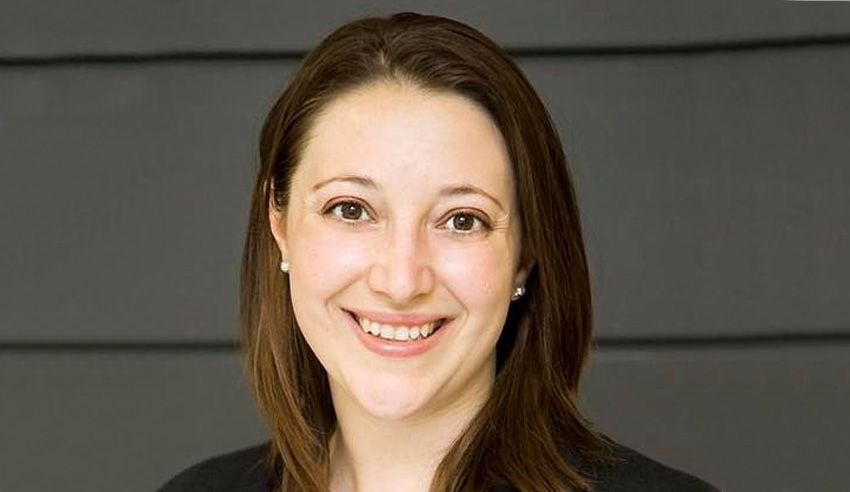The assumption that the legal profession will slowly progress towards true equality of its own accord is a mistake, Australian Women Lawyers president Leah Marrone told Lawyers Weekly. It is about time that the whole of the profession puts real structures in place if they stand a chance of guaranteeing gender parity across the board.

Speaking to Lawyers Weekly as part of our International Women’s Day (IWD) series, Ms Marrone cautioned firms, the bar and the whole of the profession from settling into the notion that the profession will change on its own and that there does not need to be any additional work on their part to reach gender equality.
Those issues have not changed in some time, Ms Marrone confirmed. Going into IWD 2021, women in law are still confronted with gender discrimination – either from conscious or unconscious bias – as well as contending with gender pay gaps and significant disparities in senior leadership roles across the profession. This also goes for people of different cultures, diversities and sexual orientations.
One of the primary concerns over the last 12 months – and one that Australian Women Lawyers (AWL) will focus on moving forward – is the disappointing lack of women appointed to the bar at a federal level. Under Attorney-General Christian Porter’s leadership, “we have actually gone backwards” in terms of reaching equity. Looking at Melbourne’s registry, nine men and zero women have been appointed.
Another of the AWL’s 2021 focuses is addressing sexual harassment in the wider profession, especially given the Dyson Heydon findings in June 2020 and the new allegations against Mr Porter. The former raised a question of whether a judicial commission would be the right step to foster a safe environment for all lawyers.
“[We need] to make sure that there is a culture in the workplace that says women are supported and victims are supported,” Ms Marrone said. “It really needs to come from the top. I would like to see minimal use of non-disclosure agreements, so women are not just silenced. They should only be in place if the victim asks for it.
“Not promoting or advancing perpetrators is another and making firms have their own investigations and ensure they have a trauma-informed approach so that the victim does not have to retell their story to a number of people continually.”
In terms of achieving a better culture in the legal workplace, while some firms may celebrate that they have reached a 40/40/20 goal, Ms Marrone questioned whether “true equity in leadership” has been achieved and implored them to look further into the ways leadership and key decisions are distributed among both genders.
“Who are the ones that are actually able to make the key decisions about the firm? Who are the ones that are making the key decisions about who they brief out? Who does the employing? Look behind it, [because] it’s usually equity partners and we’re not really near equity in terms of gender parity,” she said and added that a fix would be: “Looking at the equity briefing and who they are briefing, and an audit of it.”
As for achieving parity in the judiciary, Ms Marrone asked lawyers to “kick habits” that see them returning to the same barrister with briefs – usually those barristers being men. She said that people need to start thinking outside of the box to give new people a try. It could also start by signing up to the Law Council of Australia’s (LCA) equity briefing policy to ensure that parity is reached each time a brief is handed out.
One of the more pressing issues across the profession is the still prevalent gender pay gap. In the same way that some firms have celebrated reaching leadership quotas without checking the technicalities behind it, some may be content with the way they distribute salaries without ensuring that transparency has been made key.
“Pay transparency is absolutely key,” Ms Marrone said. “They need to move away from confidentiality clauses around pay and start doing pay audits so that they are actively going out there and looking at people’s services and people’s works and looking at the levels of pay. And looking at the graduates’ pay, too.”
Speaking of that pay gap in graduate levels, Ms Marrone said there needs to be a consideration of changing the awards to ensure that first-year graduates and law clerks are being paid fairly and not based on gender. She said there could be greater protection in terms of industrial law and on a legislative basis, but especially if firms consider the amount of unpaid overtime that these grads are working.
Firms should also be looking at their flexible work arrangements and ensuring that their pay methods reflect the current working practices. This means moving away from time-based billing and accounting for people’s work and performance, “which is not primarily related on time, and particularly time spent at a desk”.
“A lot of women log back on after the kids are in bed and continue working. Having a child now, I work a lot more efficiently and in much shorter periods prior to children. A lot of women say they have that experience as well, that we’re more productive in a shorter time. Time-based billing certainty needs to be on the way out,” she said.
Read more from this IWD series:
